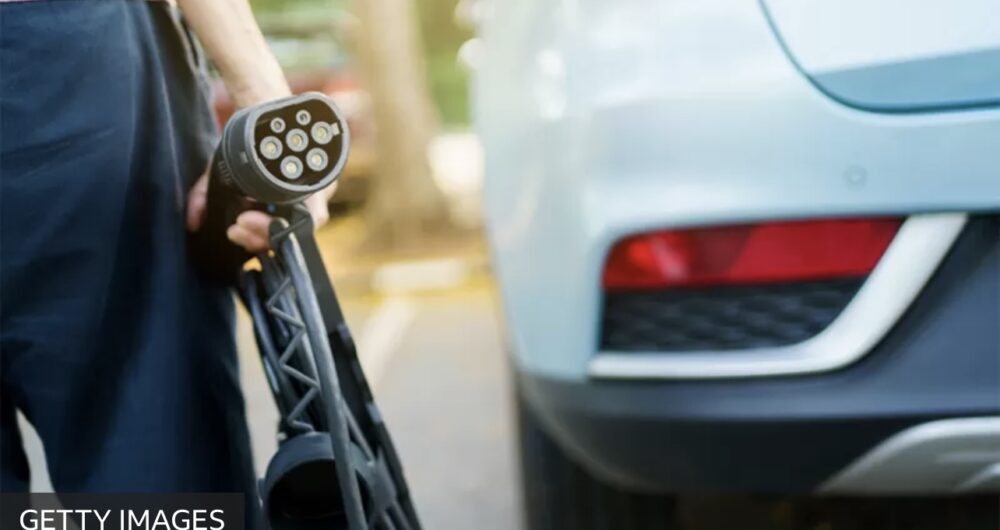Electric cars will no longer be exempt from vehicle excise duty from April 2025, the chancellor has said.
Announcing the change as part of his Autumn Statement, Jeremy Hunt said the move was designed to make the motoring tax system “fairer” according to BBC News.
The RAC motoring group said it did not expect the change to dampen demand for electric vehicles (EVs).
But others, including the AA, warned the move would reduce the incentive to switch to EVs.
Mr Hunt said: “Because the OBR (Office for Budget Responsibility) forecasts half of all new vehicles will be electric by 2025, to make our motoring tax system fairer I’ve decided that from then, electric vehicles will no longer be exempt from vehicle excise duty.”
Vehicle Excise Duty (VED) is a tax levied on vehicles on UK roads. At present, EVs are exempt.
There are different rates depending on the vehicle.
The chancellor said company car tax rates for electric vehicles will remain lower than for traditionally fuelled vehicles.
RAC head of policy Nicholas Lyes said: “After many years of paying no car tax at all, it’s probably fair the government gets owners of electric vehicles to start contributing to the upkeep of major roads from 2025.
“Vehicle excise duty rates are unlikely to be a defining reason for vehicle choice, so we don’t expect this tax change to have much of an effect on dampening the demand for electric vehicles given the many other cost benefits of running one.”
However, the AA said the introduction of the tax on electric cars would “slow the road to electrification”.
“This may delay the environmental benefits and stall the introduction of EVs onto the second-hand car market. Unfortunately the chancellor’s EV taxation actions will dim the incentive to switch to electric vehicles,” said Edmund King, AA president.
Ryan Fulthorpe, motoring expert at comparison site Go.Compare, called the announcement “a real blow” for electric car drivers.
“Traditionally, the environmental benefits of driving an EV, coupled with the savings on running costs are the main reasons people make the switch away from a petrol or diesel car,” he said.
“So to increase the running costs of an EV seems counter-intuitive, and could ultimately slow the growth of this market.”
Image source: BBC News




